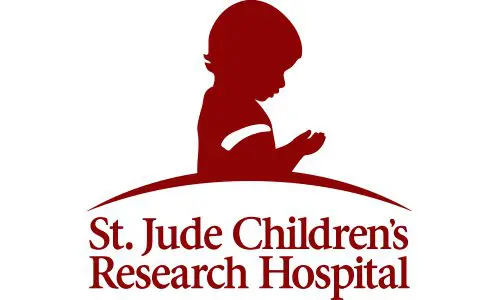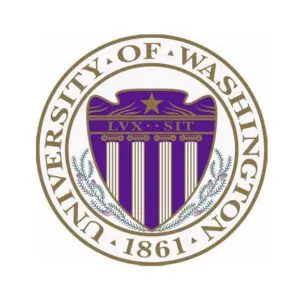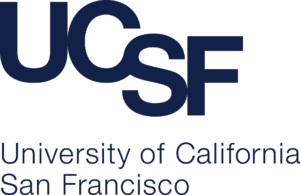The following are active and completed projects funded by FCF centered on characterizing the immune environment and investigating new immunotherapy approaches for FLC.
Project summaries: Immunotherapy-related efforts
Timeframe: 2023 - 2025
Goals: Identifying factors in the tumor environment that impair immune responses to FLC and defining potentially effective immunotherapy strategies
Principal Investigators: Venu Pillarisetty, MD (University of Washington); and Kevin Barry, PhD (Fred Hutchinson Cancer Center)

Study overview: Immunotherapy – harnessing patients’ immune systems to attack tumor cells – has become established as an exceptionally promising approach in cancer treatment. However, the few published studies of FLC to date have showed limited success of currently approved immunotherapies, such as immune checkpoint inhibitors. More promising results in FLC have been seen in (as of yet) unpublished laboratory tests and a clinical trial of a peptide vaccine targeting the cancer’s unique molecular driver. However, among patients who developed a strong immune response against the FLC driver, only a subset showed marked clinical benefit.
Prior work from Dr. Pillarisetty revealed characteristics of immune cells in the tumor environment indicating that their ability to find and kill cancer cells is suppressed in FLC. The main goal of the proposed research is to better understand factors responsible for this suppression, and to find ways to overcome the barriers and thereby fully unleash the therapeutic potential of immune cells against FLC. Certain classes of T lymphocytes, including some capable of directly killing cancer cells, are found within human FLC tumors. However, these immune cells may be sequestered away from cancer cells. Second, receptors on T cells do not multiply as much as in other tumor types suggesting that the immune system is not responding normally to immune triggers called antigens. Third, cytotoxic T cells—immune cells that can kill cancer cells—may be dysfunctional.
This project aim is to investigate how immunotherapy alters these attributes and thus may be employed to reverse the immunosuppression in FLC. The team will characterize the distribution of immune cells in relation to cancer cells and evaluate the proliferation of specific T cells after immunotherapy. They will use slices of FLC tumors from patients to test how combinations of immunotherapy influence the cancer-killing function of T cells. This work will focus on the roles of members of two broad classes of signaling molecules in the tumor microenvironment, known as cytokines and chemokines. These are secreted proteins that regulate inflammatory responses (cytokines) and control cell migration (chemokines). Finally, as an important resource for the field, they will develop a novel mouse model of FLC with an intact immune system to make studying the disease easier.
The ultimate goal is to learn how to create immune system treatments that can prolong patient survival or even cure FLC.
Timeframe: 2022 - 2024
Goals: Advance immunotherapy for FLC by defining promising immunological targets that can be translated into effective cell-based immunotherapies
Principal Investigators: Praveen Sethupathy, PhD (Cornell University); Mark Yarchoan, MD (Johns Hopkins University); Paul G. Thomas, PhD (St. Jude Children’s Research Hospital)

Study overview: Like tumors of other cancer types, the microenvironment of FLC tumors is highly complex, comprising many different cell types. It is now well-established from investigation of other cancer types (such as lung, breast, and pancreatic cancer) that cross-talk among these different cell types can promote tumor development, growth, and spread. A recent study in the Sethupathy lab identified critical regions of the genome that are uniquely activated in FLC. These regions offer clues about the genes that might be most critical for the development of FLC. However, an important limitation of this work is that it was performed on bulk FLC tissue, which does not resolve different cell types, and instead treats tumor tissue as one whole unit. This means that the specific cell types in which these FLC genes are active is not yet known. This represents a major knowledge gap. Identification of the specific cell types in which FLC genes are active would then allow more precise study of the functions of these genes in FLC, and facilitate the development of more effective targeted therapeutics.
To help bridge this knowledge gap, the Sethupathy (Cornell), Yarchoan (Johns Hopkins), and Thomas (St. Jude Children’s) labs will participate in a collaborative research consortium to develop an FLC tumor “atlas”. They will leverage state-of-the-art genome-scale technologies to provide unprecedented resolution of the cellular and molecular landscape of FLC. This consortium brings together three groups with longstanding interests and experience in FLC research, as well as specific expertise in genomics and gene regulation (Sethupathy), clinical oncology (Yarchoan), and immunology (Thomas and Yarchoan).
Timeframe: 2022 - 2024
Goal: Defining the most promising immunological targets that can be translated into effective cell-based immunotherapies
Principal Investigators: Paul G. Thomas, PhD

Study overview: New immunotherapeutic approaches have produced spectacular outcomes for a small subset of tumors, including certain melanomas, lung cancers, and leukemias, but these dramatic cures have not been broadly observed across all tumor types, including for fibrolamellar carcinoma (FLC). The goal of this proposal is to advance immunotherapy for FLC, by defining the most promising immunological targets that can be translated into effective cell-based immunotherapies. In addition, these results will provide sensitive diagnostic tools for determining which patients are most likely to benefit from diverse immunotherapeutic approaches, including those currently in use or in trials. Immunotherapies work by activating T cells, which can recognize tumor cells by identifying fragments of proteins not present in healthy cells. In principle, FLC is an outstanding candidate for immunotherapy because virtually all tumors across all patients contain the same tumor-specific fusion protein, DNAJB1-PRKACA. A difficulty with T cellbased therapies, however, is that the targets T cells recognize vary widely from person to person, even if derived from exactly the same protein, as in the case of FLC. Also, multiple types of T cells can attack the exact same target, and this diversity has limited the ability to identify effective T cells within and between patients.
This effort addresses both sides of this complex diversity—the diversity in tumor targets within the FLC fusion and the many different T cells that attack them. Using multiple innovative computational and technological approaches for T cell and antigen characterization, the study team will:
- Identify the most useful FLC fusion targets across the vast majority of the human population
- Isolate corresponding T cells (and the critical T cell receptor) that can attack these tumor antigens, and
- Determine which T cell-antigen combinations have the highest efficiency for tumor killing.
Collectively, the successful completion of this proposal will identify potential T cell-based therapies for clinical translation and an immediately applicable set of diagnostic tools for assessing a patient’s response to fusion-targeted immunotherapies.
Timeframe: 2020 - 2024
Goal: Develop and fund a series of three-year FLC research fellowships

Overview: This grant extended FCF's successful partnership with the prestigious Cancer Research Institute (CRI) to identify and staff three-year research fellowships for young researchers focusing on immunotherapy-related research for fibrolamellar. CRI has been promoting immunotherapy research for 65 years, long before the establishment cancer treatment and research community recognized immunotherapy as a legitimate prospect for cancer patients.
Under the program, CRI identifies and screens potential candidates for the joint FCF/CRI fellowships. Those candidates learns about the opportunity and apply through CRI's existing Postdoctoral Fellowship Program process. FCF then approves and funds the joint FCF/CRI fellowships for selected researchers who have a FLC-specific research focus. The overall goal of the program is to identify and attract promising early-career researchers to investigate our disease.
Results: While ongoing, two joint FCF/CRI fellowships have been established through this grant extension:
- Francisco Navarro, PhD (Albert Einstein)
- Lindsay Dickerson, MD (University of Washington)
Timeframe: 2020
Goal: Assess whether suppressing checkpoints or signaling by a specific chemokine (CXCL12) can enhance immune response in FLC
Principal Investigator: Venu Pillarisetty, MD

Study overview: Immunotherapy, harnessing the patient’s immune system to precisely target cancer cells, has emerged as a promising approach to treat many cancers. It has been discovered that fibrolamellar carcinoma (FLC) tumors contain a class of immune cells called T cells that potentially could recognize and destroy the cancer cells. However, the therapeutic ability of T cells can be limited by suppressive factors made by both cancer cells and other cells in the tumor such as the abundant fibroblastic stromal cells that give FLC its name. Suppressive molecules in the tumor microenvironment that may limit anti-cancer immune responses include “immune checkpoints” and signaling molecules known as cytokines. The latter include chemokines, small protein chemical messengers that influence cell migration.
This study aimed to determine whether blockade of checkpoints and/or signaling by a specific chemokine (CXCL12) can enhance T cell mediated immunity against fibrolamellar cancer cells, using slice cultures of human FLC tumors. By doing that, it aimed to develop a foundation for an immunotherapy program to treat fibrolamellar hepatocellular carcinoma.
Results: To determine whether there is rationale for the use of immune checkpoint inhibitors (ICI) to treat FLC, the investigators examined the immune microenvironment of tumors and adjacent non-tumor liver (NTL) using FLC tumor slice cultures. The team analyzed the characteristics and of various immune cell populations, particularly the Tumor Infiltrating Lymphocytes (TILs) present in the tumor microenvironment, and identified strategies to activate the immune cells to attack the tumor.
Implications: The results from these studies provided a basis for examining tumor tissue slices in a setting which simulated the tumor microenvironment and are more amenable to large scale drug screenings. In addition, the effort provided evidence that immunotherapy has the potential to induce anti-tumor immune responses in FLC.
Timeframe: 2016 - 2019
Goal: Characterize T-cells in the FLC tumor microenvironment
Principal Investigator: Kevin M. Sullivan, MD

Study Overview: Immunotherapy is a form of cancer treatment that harnesses the patient’s own immune system to fight the disease. The immune system can precisely target cancer cells, while also minimizing damage to the remainder of the body’s normal cells. In this project, the team investigated a well-established method of using the immune system, successful in treating other cancers such as melanoma, as a treatment for fibrolamellar. They used a variety of techniques to look at which types of immune cells reside within fibrolamellar tumors. One type of immune cell, called the T cell, is of particular interest because it can specifically recognize and destroy cancer cells. The study group has previously confirmed that T cells are found within fibrolamellar tumors. Specific goals included:
- Gaining a detailed understanding of the characteristics of the T cells that are active within fibrolamellar tumors.
- Growing and activating these T cells and testing their ability to fight cancer cells in cell cultures and slices of fibrolamellar tumor grown in the laboratory.
The goal of his project was to build knowledge of the immune microenvironment that will help make T cell immunotherapy against fibrolamellar a reality.
Results: Using both normal liver and FLC tumor tissue samples from the same patients, the team determined that while similar numbers of “killer” T cells were found in both samples, the gene expression signatures of the T cells within the tumor samples were suggestive of decreased functioning. Subsequent observation of one patient’s tissues showed that, despite equivalent T cell numbers, there were fewer T cells within the FLC tumor itself, with the T cells largely relegated to the interface between the tumor and non-tumor tissue. This indicated that the inability of T cells to physically interact with FLC cells might be a potential mechanism of immunosuppression in FLC patients.
The approach of using slide cultures to study the tumor microenvironment was detailed by the publication in Cancer Immunosurveillance of a protocol entitled "Establishment of Slice Cultures as a Tool to Study the Cancer Immune Microenvironment" in November 2018. The team's related work analyzing slice cultures in mice models of colorectal liver metastases was published in Gut in June 2022.
Implications: This data highlighted the role of the tumor microenvironment in the disease progression and response to treatment. Current studies and trials are investigating how to modulate the tumor microenvironment so the effectiveness of immunotherapy treatment approaches can be increased.
Related activities: In addition to the immunotherapy-related investigations above, the team at the University of Washington authored a review article on FLC entitled "Precision oncology in liver cancer" that was published in Annals of Translational Medicine in June 2018. The full text of that article can be accessed here.
Timeframe: 2016 - 2019
Goal: Define the dominant immune checkpoint pathway in FLC
Principal investigator: Amy K. Kim, MD

Study overview: Tumor cells produce immune checkpoint molecules that suppress host immune response and allow evasion from immune responses. The discovery of drugs that block these immune checkpoints have revolutionized current cancer treatment. Anti-PD1 (programmed cell death protein 1) immunotherapy has shown benefit in many cancer types, but certain cancers have also shown strong resistance to this immunotherapy. At the time of this study, it was unclear how fibrolamellar carcinoma would respond to different immune checkpoint blockades, including anti-PD1 therapy. In addition, it was unclear how circulating tumor cells (CTCs) in the blood that have disseminated from the primary tumor induce anti-tumor immune response outside the tumor environment.
This study aimed to addressed these issues and create a deeper understanding the immune checkpoint landscape in fibrolamellar carcinoma to help guide the development of future immunotherapies. Specifically, this study sought to:
- define the dominant immune checkpoint pathway in fibrolamellar cancer and its interaction with the patient’s immune response in the tumor, and
- determine how immune checkpoint markers are associated with circulating tumor cells in the peripheral blood, in comparison to the primary tumor.
Key findings: The team analyzed thirty-two FLC tumor specimens using immunohistochemistry for the immune checkpoint pathways PD-L1, CD8, PD-1, IDO, LAG3, and B7-H3, in relation to CD8+ cytotoxic T-lymphocyte density. Based on that analysis, 63% of FLC cases demonstrated PD-L1 expression on tumor cells, and almost 70% of cases demonstrated PD-L1+ tumor-infiltrating lymphocytes (TILs) and tumor-associated macrophages (TAMs). Amongst other immune checkpoint pathways, 40% of the cases showed B7-H3 expression in the tumor zone, with 91% cases showing B7-H3 expression in TILs and TAMs. B7-H3 or IDO expression on tumor cells significantly correlated with higher CD8+ T-cell density.
This up regulation of immune checkpoints in FLC is different than in other pediatric cancers and may explain the poor response to checkpoint inhibitor treatment in some cases of FLC. High frequency of PD-L1, IDO, and B7-H3 expression on TILs and TAMs may play an important role in immunosuppression in the TME, which could be targeted for inhibition. Combination of PD-L1 inhibition with either IDO inhibitors or B7-H3–targeted therapy is already in early clinical trials for other solid cancers, so this study provided a rationale for investigating similar approaches in FLC.

Details of the study were published in May 2019 in Cancer Immunology Research. The published article can be read here: https://aacrjournals.org/cancerimmunolres/article/7/5/805/466758/Multiple-Immune-Suppressive-Mechanisms-in
Implications: Data from the study provide further basis for targeting different immune-checkpoint axes in FLC, including combinational treatments.
Timeframe: 2016 - 2019
Goal: Study the interactions between the immune system and FLC in a mouse model
Principal Investigator: Kevin Barry, PhD

Study overview: Cancer immunotherapies harness the power of the immune system to kill tumors. Checkpoint blockade immunotherapies are an exciting class of cancer immunotherapies that remove the brakes from the immune system and allow effective killing of tumor cells. These therapies function by targeting molecules that inhibit tumor-directed responses by immune cells called T cells. T cells are important for protecting patients from tumors as these cells directly kill tumor cells and modulate the global immune response towards tumors. Immunotherapies targeting T cells have been remarkably effective in treating non-FLC cancer patients, leading to tumor regression and offering long-term protection, effectively providing a cure to cancer in some patients. However, at the time of this study,very little was known about how the immune system interacts with FLC or if immunotherapy would be an effective treatment for FLC.
The study of the efficacy of immunotherapy in the treatment of FLC is hampered by the fact that the current patient-derived xenograft animal models of FLC utilize the transplantation of human tumor into immune compromised animals. The lack of an effective immune system allows the host mice to grow tumors, but also makes it impossible to study the interactions between the immune system and FLC in this model system. This study harnessed a preclinical mouse model of FLC developed by Dr. Julien Sage and Stanford University with a fully functional immune system to understand how the immune system interacts with FLC. These studies represented the first steps towards treating FLC patients with immunotherapy in the clinic.
Results: The investigator analyzed a mouse model that conditionally expressed the DNAJB-PRKACA fusion protein. While the hepatocytes expressed the fusion protein, there was no tumor development once the mice were aged. This suggested that the expression of fusion protein in hepatocytes may not be sufficient to drive tumorigenesis in FLC.
Additionally, to explore the immune cells present in FLC, the researchers obtained fresh patient samples and dissociated the tumor into a single cell suspension. Those suspensions were sorted into a non-immune fraction, an immune fraction consisting of all immune cells except T cells, and a T cell fraction. The cells were then analyzed to identify the transcriptional makeup of the immune cells in FLC at the single cell level.
The study founds that the T cell population was made up of a large segment of exhausted T cells, which is indicative of a suppressive immune microenvironment and usually reduces the efficacy of immunotherapy approaches. Follow up analysis of the dataset will help to identify unique changes in the genes expressed in the immune cells within FLC and understand the characteristics of how the immune system responds to FLC.
Implications: These studies will help to fully characterize the distinct transcription programs in immune cells in FLC. These studies are critically important to understand the interaction of the immune system with FLC and to design effective immunotherapy approaches.
Timeframe: 2016 - 2019
Goal: Develop and fund a series of three-year FLC research fellowships

Overview: With this grant, FCF partnered with the prestigious Cancer Research Institute (CRI) to specifically focus on the role immunotherapy could have in creating curative therapies for fibrolamellar. CRI has been promoting immunotherapy research for 65 years, long before the establishment cancer treatment and research community recognized immunotherapy as a legitimate prospect for cancer patients.
This grant provided funding to develop and staff a series of joint FCF/CRI research fellowships for young researchers. Under the partnership, CRI would identify and screen potential candidates applying to their Postdoctoral Fellowship Program. FCF would then approve and fund three-year fellowships for selected researchers with FLC-specific research focus. The overall goal of the program was to identify and attract promising early-career researchers to investigate our disease.
Results: Through this program, four joint FCF/CRI fellowships were established:
- Amy Kim, MD (Johns Hopkins University)
- Kevin Sullivan, MD (University of Washington)
- Kevin Barry, PhD (University of California, San Francisco)
- Sofia DeOliveira, PhD (University of Wisconsin)
The young researchers awarded these fellowships have been making great strides forward in investigating the applicability of immunotherapy to FLC treatment. Details of their work is described in separate postings.
Timeframe: 2016 - 2017
Goals: Determine if T cells can be generated that react to FLC's characteristic fusion protein

Principal Investigator: Ephraim Fuchs, MD
Study overview: In FLC, the characteristic DNAJB1-PRKACA fusion creates a novel protein with a unique amino acid sequence occurring at the junction of these two proteins. This unique amino acid sequence could function as a “neoantigen” that can be recognized as foreign by the immune system of the patient or even the immune system of a healthy donor such as a sibling or parent. The goal of this project was to identify the novel amino acid sequence that occurs in patients with FLC and to generate a response to this sequence from T cells of the immune system.
If T cells that react to the chimeric fusion protein of FLC could be generated and expanded in tissue culture, such T cells may be capable of killing cells that express this protein. One possibility is to raise T cells against the fusion protein from a healthy donor and infuse these T cells after partial liver transplantation and bone marrow transplantation from this donor. Such an infusion would be expected to reduce the risk of tumor relapse.
Key elements of the effort included:
- Obtaining tumor tissue from a biopsy and determining the sequence of chimeric fusion protein.
- Create peptides that spanned the junction between the DNAJB1 and PRKACA proteins.
- Collecting blood from the patient and tissue-matched relatives and culturing those cells in presence of the peptide, interleukin-2 (IL-2) and IL-15
- Testing the T cells for specificity to the peptide.
Results: A biopsy specimen from an FLC patient was sent for whole genome sequencing and targeted mutation analysis, which identified the fusion gene and predicted amino acid sequence. The team synthesized 14 overlapping peptides, each containing the fusion amino acids and overlapping 13 amino acids from its neighboring peptide. These fusion peptides were used to stimulate peripheral blood cells of the recipient and tumor-infiltrating lymphocytes (TILs) of the recipient. In parallel, relatives of the patient donated blood and their lymphocytes were stimulated with overlapping peptides encompassing the fusion region of the patients DNAJB1-PRKACA fusion protein.
The study identified that it was possible to grow T cells specific for the fusion protein in both cases. Both the patient and the donors had T cells that recognized and proliferated in response to the unique protein presented by the patient's FLC tumor.
Implications: This preliminary data supports the possibility of generating and expanding T cells that recognize proteins that are uniquely expressed by FLC. This ability to grow T cells that recognize the DNAJB1-PRKACA from patients and healthy, related donors, PD-L1 expression on FLC cells, and the presence of tumor-infiltrating lymphocytes in FLC, indicate potential promise for new immunotherapy approaches to treating FLC.
